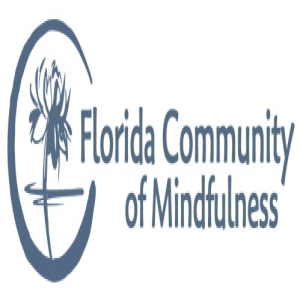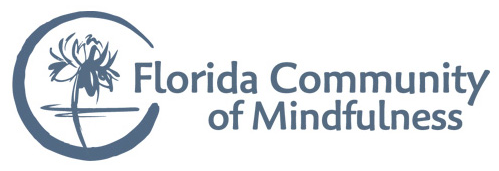Episodes

Monday Sep 27, 2021
Reflections on a Wisdom Retreat (2021)
Monday Sep 27, 2021
Monday Sep 27, 2021
9-12-21
In this talk, Dharma teacher Fred Eppsteiner shares with us the meaning and significance of a Wisdom Retreat. We also hear sharing from four FCM members who were on this week's retreat.
Since the time of the Buddha, countless teachers have pointed out the innate simplicity and spontaneous wisdom of our true mind. Unfettered by conditioning and emotional reactivity, this mind has the capacity to guide and support us spontaneously in living an awakened life. Directly experiencing the mind and all the things that appear in it (especially the self!) as empty of any substance or solidity allows one to break through into the totally open and spacious mind nature. This is the basis of true transformation.

Tuesday Aug 31, 2021

Monday Aug 30, 2021
The Three Fierce Mantras (2021)
Monday Aug 30, 2021
Monday Aug 30, 2021
In this Dharma talk, Fred Eppsteiner shares the Three Fierce Mantas, powerful words that can cut through our confusion and anxiety in this life. Our resistance to the unfolding of life, especially those situations unwanted or unexpected, is a primary cause of our emotional ups and downs. Our difficulty in accepting the experiences of life and the people in it for what they are and imposing our own needs and wants fuels an unending circus of negative emotions and conflictual mind states. Our desire to live peacefully in the present moment and practice mindful living becomes continually up-ended by our habitual dysfunctional responses.
The Three Fierce Mantras ~ Tsangpo Gyare, 12th century Tibetan Buddhist Ascetic
“Whatever has to happen, let it happen!"
“Whatever the situation is, it’s fine!"
“I don’t need anything whatsoever!”

Tuesday Aug 17, 2021
Nurturing Community and Relationships: The FCM Sangha Harmony Guide
Tuesday Aug 17, 2021
Tuesday Aug 17, 2021
8-8-21
During this talk, our teacher, Fred Eppsteiner, shares with us teachings and practices to nurture community and harmony in our relationships. Fred introduces us the the FCM Sangha Harmony Guide.
The FCM Sangha Harmony Guide has been developed to support our Sangha’s aspiration to be true community dwelling in harmony and awareness. It presents guidelines and expectations around how we aspire to be with each other, and how we can practice to resolve conflict and disharmony. It is intended for all participants in our Sangha: members and non-members, teachers and students, staff and selfless-service volunteers, brothers and sisters both local and geographically distant. It is grounded in the Five Mindfulness Trainings of the Plum Village tradition of Thich Nhat Hanh.

Monday Aug 16, 2021
Buddha’s Wisdom from the Dhammapada
Monday Aug 16, 2021
Monday Aug 16, 2021
8-1-21
Dharma teacher Fred Eppsteiner teaches from the Dhammapada.

Tuesday Jul 20, 2021
Dharma Transmission through Relationships and Community (2021)
Tuesday Jul 20, 2021
Tuesday Jul 20, 2021
7-4-21
During this talk, our teacher, Fred Eppsteiner, shares with us the importance of community and how Dharma transmission manifests through relationship between teachers and students. Fred also shares with us the meaning of the phrase "All people are created equal and entitled to life, liberty and the pursuit of happiness" in relationship to the Buddhist teachings.

Monday Jul 19, 2021
Thay’s 14 Verses on Meditation (2021)
Monday Jul 19, 2021
Monday Jul 19, 2021
7-11-21
During this talk, our teacher, Fred Eppsteiner, shares with us and comments on the Fourteen Verses on Meditation from the Plum Village chanting book "Chanting from the Heart", Thay's summary of his meditative path.

Sunday Jun 06, 2021
Reflections on a Wisdom Retreat (2021)
Sunday Jun 06, 2021
Sunday Jun 06, 2021
6-6-21
In this talk, Dharma teacher Fred Eppsteiner shares with us the meaning and significance of a Wisdom Retreat. We also hear sharing from four FCM members who were on this week's retreat.
Since the time of the Buddha, countless teachers have pointed out the innate simplicity and spontaneous wisdom of our true mind. Unfettered by conditioning and emotional reactivity, this mind has the capacity to guide and support us spontaneously in living an awakened life. Directly experiencing the mind and all the things that appear in it (especially the self!) as empty of any substance or solidity allows one to break through into the totally open and spacious mind nature. This is the basis of true transformation.

Wednesday May 26, 2021
Siddhartha’s Enlightenment: The Power of the Awakened Mind (2021)
Wednesday May 26, 2021
Wednesday May 26, 2021
5-23-21
During this talk, our teacher, Fred Eppsteiner, explains the profound significance in the Buddha's birth and Enlightenment. Celebrating the Buddha's birth, Fred share with us the meaning of the Buddha's Awakened Mind, and how we can reflect and celebrate on this most wonderful manifestation of wisdom and compassion in the life of the Buddha.

Tuesday May 25, 2021
The Significance of Meditation Gathas Part 2 (2021)
Tuesday May 25, 2021
Tuesday May 25, 2021
5-16-21
In this talk, Dharma teacher Fred Eppsteiner continues to share with us the significance of meditation gathas. Continuing from his last talk Fred shows us how to not just listen to the words, but to tend to the meaning of each gatha. These gathas are trying to "wake us up." Fred encourages us to stop and reflect on the meaning of each gatha.

